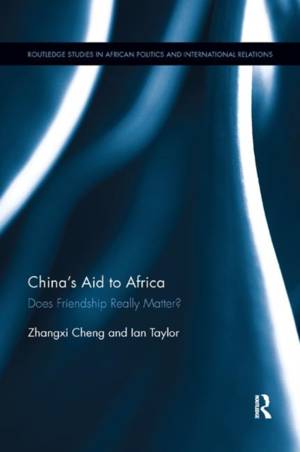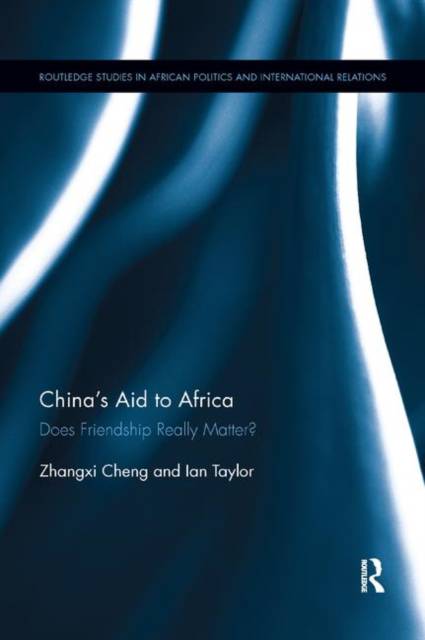
- Retrait gratuit dans votre magasin Club
- 7.000.000 titres dans notre catalogue
- Payer en toute sécurité
- Toujours un magasin près de chez vous
- Retrait gratuit dans votre magasin Club
- 7.000.0000 titres dans notre catalogue
- Payer en toute sécurité
- Toujours un magasin près de chez vous
Description
Although China has rapidly increased foreign aid to Africa and is now a relatively major player in the developmental assistance regime, little is still known regarding how China delivers its foreign aid, and even less about how this foreign aid actually works in the recipient countries.
This book, extensively utilising Chinese sources, much of which have not been available before, examines the effectiveness and sustainability of China's foreign aid in Africa, as well as the political, economic and diplomatic factors that influence Chinese aid disbursement policies. The book argues that a nebulous notion of "friendship", however ill-defined, is a key factor in Chinese aid, something which is often overlooked by Western scholars. Through a detailed examination of both the decision-making process in Chinese aid disbursements, as well as an examination of specific case studies in West Africa, this book improves our understanding of China's foreign aid policies towards Africa. It finds that there are profound shortcomings in China's foreign aid at present which, despite the protestations of "friendship" and solidarity, undermine Beijing's effectiveness as an actor in the developmental assistance enterprise in Africa.
This text will be of key interest to scholars and students of development studies, African studies, China-Africa relations and more broadly to international relations.
Spécifications
Parties prenantes
- Auteur(s) :
- Editeur:
Contenu
- Nombre de pages :
- 152
- Langue:
- Anglais
- Collection :
Caractéristiques
- EAN:
- 9780367887438
- Date de parution :
- 12-12-19
- Format:
- Livre broché
- Format numérique:
- Trade paperback (VS)
- Dimensions :
- 156 mm x 234 mm
- Poids :
- 222 g

Les avis
Nous publions uniquement les avis qui respectent les conditions requises. Consultez nos conditions pour les avis.






